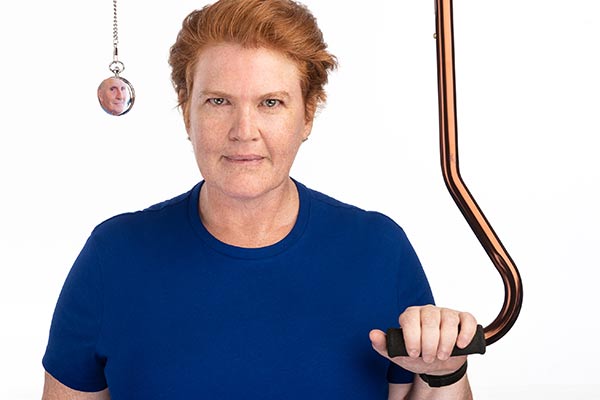From Playwright/Director Michèle Saint-Yves comes the simultaneously introspective and existential 'Clock For No Time' at RUMPUS Theatre in Adelaide.
Audiences needn't transport their minds too far to be enveloped in the work – 'Clock For No Time' is set in the perfectly topical context of the current climate emergency and COVID-19 pandemic. It asks. . . What endures once 'we' are 'gone'?
Simone has an acquired brain injury, and her father Ian has advanced Alzheimer's disease. This performance explores and juxtaposes the brain neuropathologies of these two characters. Can Simone find the answer to her existential query if she faces the realities of not only her condition, but her father's too?
'Clock For No Time' embeds access in performance and audience-inhabited spaces. It's neurodivergent and dementia-friendly and stars Jo Stone, Paul Reichstein and Jennifer Liston.
Here, we have a chat to Playwright/Director Michèle Saint-Yves about what inspired her to write the show, and her hopes for audience response.
This show is very topical. When were you first inspired to write the show?
I wrote the show after seeing my father for the last time – he died two years ago this month from Alzheimer's – as a way to process having ‘lost’ my dad as I knew him. Witnessing his fragility and the sense of time quickly running out seemed to parallel the climate emergency too.
Why was this something you wanted to create?
I was desperate to make meaning of my loss and knew that many of my peers were dealing with this widespread disease in our parents’ generation. I also realised there were a great deal of similarities between my dad’s existence and my own as a disabled creator with an acquired brain injury. This gave added impetus to create this work centring a disabled woman and a person with a debilitating disease as a play’s central characters.
How are you hoping audiences respond to the work?
I hope that audiences respond in such a way that their hearts crack open a bit and this has a ripple effect on what values they choose to centre in how they then behave.
Michèle Saint-Yves
What’s the most important take away of ‘Clock For No Time’?
The most important take away of the play is that feeling life is more important than any form life takes, and just love the unanswerable absurdity of it all.
What has been the biggest challenge in writing/preparing this show?
The biggest challenge in preparing this show has been seeking to embed access languages into the design and performative aspects of the show, as well as rendering it dementia and neurodivergent friendly.
On the other side of that, tell us what the most rewarding part of the process has been?
The most rewarding part of the process has been working with the designers and actors to manifest the interior worlds of the characters.
As mentioned, the show is also incredibly accessible for a wide range of audiences. What does this mean to you?
One of my primary aims is to demonstrate that the independent theatre sector – which is the most affordable, widespread and diverse in its offerings – can provide accessible and inclusive productions without being cost-prohibitive: it’s a matter of planning and preparation. To put on shows where anyone can come and enjoy it without compromising access and the play’s artistic ambition is a career goal.
What are you most looking forward to about bringing ‘Clock For No Time’ to the stage?
I am excited at the possibility of witnessing the transformation of a person’s perception of how to be in the world.
'Clock For No Time' plays RUMPUS Theatre (Adelaide) 19-31 October.







